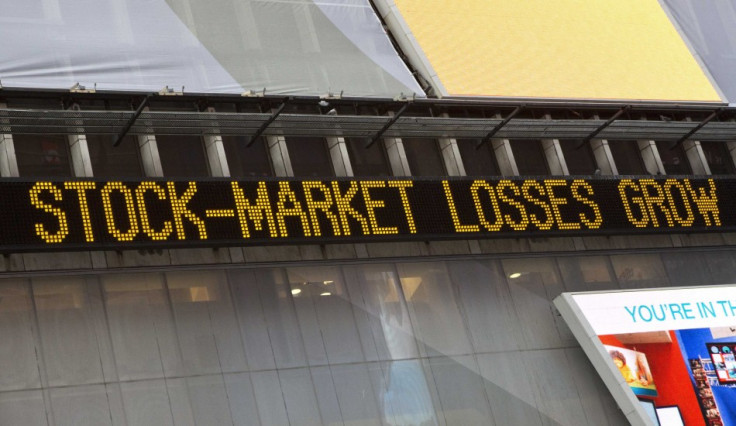Wall Street Braces for Crucial Week as Fiscal Cliff Deadline Looms
CBOE Volatility Index up above 20, first time since June

Wall Street is bracing itself for a crucial week as the Republicans and Democrats are yet to come up with a deal to avert the 'fiscal cliff' that could push the world's largest economy into recession.
Though the US stock market remains resilient and has not shown any signs of meltdown, analysts fear panic in financial markets if the US lawmakers fail to raise the debt ceiling, which would result in a threat of default and credit downgrade.
The leaders have two days to thrash out a deal to avert automatic tax rises and spending cuts across the board. The US will technically reach its $16.4tn (£10.1tn/€12.36tn) debt ceiling, the legal limit set by Congress on how much the US government can borrow, at the end of 2012.
The last time the US increased its debt limit was in July 2011, from $14.3tn to $16.4tn in anticipation of automatic tax rises and spending cuts that would come into effect from 1 January, 2013. A couple of days after the announcement, Standard & Poor's downgraded the US from its top ranking AAA to AA+.
"If this thing continues for a bit longer and the result is you get a US debt downgrade ... the risk is not that you lose two-and-a-half percent, the risk is that you lose ten and a half," Jonathan Golub, chief US equity strategist at UBS Equity Research, in New York told Reuters.
US President Barack Obama has said he is "modestly optimistic" about reaching a deal to avoid the fiscal cliff as Senate leaders continued their work to come up with a bill that could win approval in both houses of Congress.
"The hour for immediate action is here. I'm modestly optimistic that an agreement can be achieved," said Obama in a White House briefing.
Obama indicated that if a deal is not reached he would seek a quick vote on preventing tax rises on incomes up to $250,000 (£150,000) and ensure the continuation of unemployment insurance.
Obama said the minimalist bill that would be introduced by the Democrats would be an "up-or-down vote on a basic package that protects the middle class from an income tax hike, extends vital unemployment insurance for Americans looking for a job, and lays the groundwork for future progress on more economic growth and deficit reduction".
US equities slid in after-hours trade on Friday while the futures market extended the weakness and volatility.
The CBOE Volatility Index, or the VIX, an indicator of near-term market volatility, rose to 22.72 for the January contracts on 28 December, a 17 percent rise since June.
However, analysts are hopeful that the leaders will provide some kind of respite, and are not expecting the kind of volatility witnessed during 2008 or 2011.
"Expectations are pretty low at this point, and yet the equity market hasn't reacted. You're not going to see the markets react to anything with more than a 5 (percent) to 7 percent correction," Carmine Grigoli, chief US investment strategist at Mizuho Securities USA in New York, told Reuters.
© Copyright IBTimes 2025. All rights reserved.





















